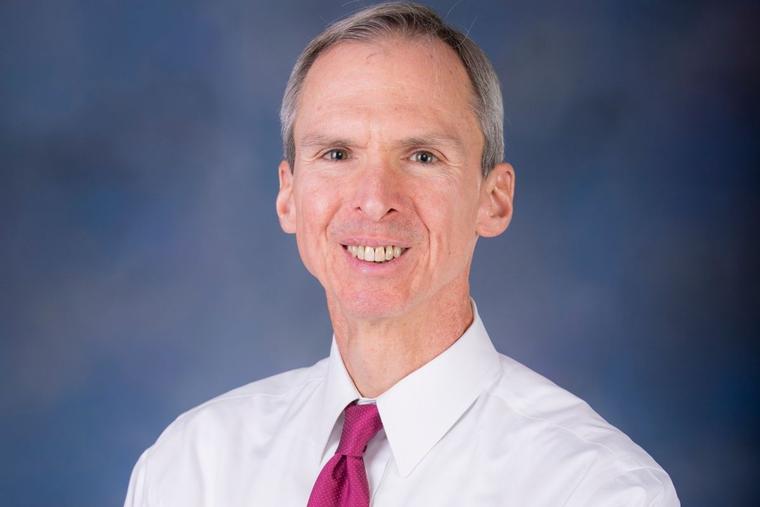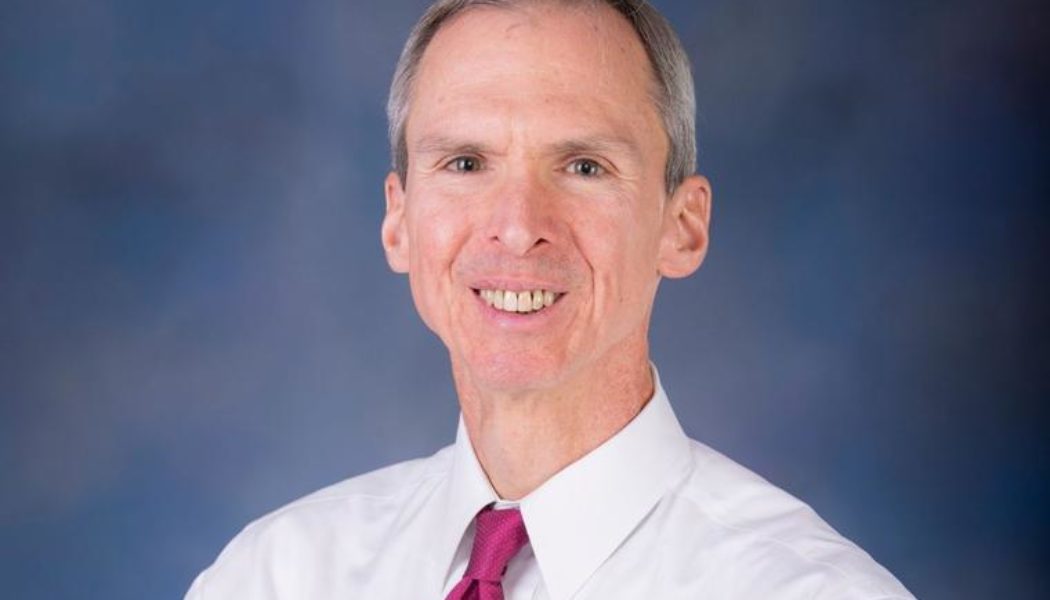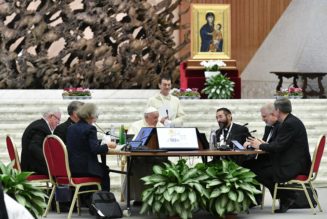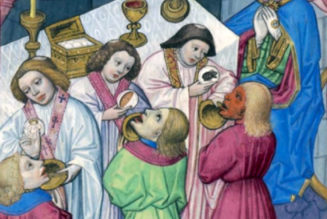
Former Democratic U.S. Rep. Dan Lipinski of Illinois, a Catholic, is both taking on a new challenge and returning to his roots as the new Pope Leo XIII Fellow on Social Thought at the University of Dallas.
Lipinski served eight terms in Congress as a pro-life Democrat before being defeated in his 2020 primary by pro-abortion challenger Marie Newman, after abortion groups backed her with substantial funding. Prior to his time in Congress, he taught political science at the University of Tennessee and the University of Notre Dame.
Lipinski spoke with the Register Monday about his new teaching role and how he views the role of Catholics in today’s divisive political climate. He also discussed the lessons to be learned from the writings of Pope Leo XIII and how pro-life politicians should hone their message in the post-Roe era.
How do you see yourself best serving the University of Dallas?
I’m excited to get back into classroom teaching. I think I’m going to be a much better teacher now than I was 18 years ago. I have a lot more stories to tell, a lot more wisdom hopefully to impart. I’m especially excited to be doing it at a school that takes its Catholic mission very seriously and is academically rigorous. I’ll be teaching in the politics department, and this semester I’m co-teaching a political parties class.
What do you think are some important things for young Catholics to know about today’s political climate?
It’s really important for Catholics to be Catholic first, especially in these times where partisanship seems to be taking over peoples’ identities and driving their issue positions more than their Catholic beliefs. Catholics don’t fit neatly into either political party. It is very important that Catholics do not let their partisanship come before being Catholic.
What are some ways the Republican and the Democratic Parties follow Catholic social teaching, and what are some ways they fall short?
Having served in Congress as a Democrat, it is painfully clear on the abortion issue: The Democratic Party has gone very radical in being pro-abortion. Gender ideology has also become something in recent years that has gone off in a direction that is contrary to Catholic social teaching. These are issues that Pope Francis has talked about and has really pointed out: that, for Catholics, protecting the life of the unborn and also not believing in this radical gender ideology is very important.
When it comes to Catholic social teaching on other issues, I think the Democratic Party has made it a priority — although it takes a back seat right now to some of the social issues, unfortunately — to be caring for the poor and caring for the environment. I think those are the things that Democrats have been certainly out front on; and, very importantly, the rights of workers, which is something you don’t hear as much about today. Pope Leo XIII really started the modern Catholic thinking on social justice, and focusing on the rights of workers is one of the things in Rerum Novarum.
The Republican Party, on the positive side, has been the pro-life party, although I think pro-life politicians dropped the ball in the last election: They would say they’re pro-life, but they would run away from the issue; and I think that was very harmful, in terms of letting the other side define the issue. It’s very important that politicians who say they’re pro-life get out there and say it’s because they understand that “This is a human being.”
When it comes to the rights of workers and protecting the environment, I don’t think the Republican Party has taken a position more in line with Catholic social teaching.
Did Pope Leo XIII’s writings inform your time in Congress?
Rerum Novarum did especially; it was a response to the times, and it staked out the Catholic Church’s position saying that the rights of workers are extremely important, but it also defended capitalism and private property. It was striking a position that was against the communist ideology that was rising at the time, but also saying that, in this era, before there were a lot of protections for workers, there is an important role of government in protecting workers. It’s something that a lot of people probably don’t realize maybe: what things were like at that time before the turn of the 20th century. There was a real question, especially as that phase of the Industrial Revolution was moving forward, about: What should the role of government be, and, for Catholics, what should the position of Catholics be?
How are Pope Leo XIII’s writings applicable to problems we’re facing today?
I’m finally getting down to writing the book I’ve been talking about, and I’m focusing on the need for what I refer to as a civic patriotism in this country, that recognizes the self-evident truths that were talked about in the Declaration of Independence and also the processes of politics that are important for democracy. Pope Leo XIII really spoke to these issues. He brought the Catholic Church more into talking about the role of government and not just the Church walling itself off or ignoring the world and the changes that were going on.
Of course, Rerum Novarum is “Of New Things,” and it was the Church actually saying: There are important ways that Catholics need to be engaging here. I think that that’s very important right now. Catholics are engaging, but, unfortunately, they’re not engaging in ways that are necessarily the fullness of Catholic social teaching, but instead picking and choosing, depending on which party they favor.
What is the Church’s role in relation to the state?
Catholics should be engaged, bring their Catholic faith and Catholic social teaching into the public square, but we have to also recognize that we live in a representative democracy, and I believe that the Catholic Church is very supportive of representative democracy.
It’s not the role of the Church to run the government, but for Catholics to have a say in what government is going to do. In order to do that, they need to work through the democratic system.
Our foundations are based on beliefs that come from Christianity, but it’s not the role of the government to enforce that. It’s the role of Americans to evangelize the culture and to be involved in government and influencing government.
To some extent, I agree with a lot of what the integralists are talking about and certainly with a lot of the problems that they recognize in our society, but I believe that we should not be looking to the government to fix our society. We should be looking at ourselves and saying, “How have we failed in evangelizing our society?” We need to step up our evangelization, and we need to step up our political involvement as Catholics. We shouldn’t be looking for the government to fix the problems in our culture because it’s not going to work.
How have values shifted and the sense of the common good changed in the past couple of decades?
This has been a country that’s always emphasized individual rights, but so many things are declared to be rights now that our society used to understand are not conducive for our society’s good or even for an individual’s good. That’s been a significant change.
We’ve moved it in the direction of everything should be allowed, and that [everything being allowed] is a good in and of itself, not looking at a more general good.
What do you think of the contrast between the unity of Democrats around abortion versus some of the post-Roe confusion in the Republican Party around pro-life messaging?
It’s clear that the elections in November did not go well with regard to ballot initiatives that impacted life. You did have some elected officials — governors who supported some strong restrictions on abortion — who did get reelected, but, overall, it was seen as: The pro-life side did relatively poorly nationally. It’s important to try to reach a consensus amongst pro-life organizations, pro-life politicians about what to do at the federal level. There was a lot of talk about abortion not being a federal issue, even from some politicians who previously had supported restrictions on abortion at the federal level.
A federal ban on abortion at 15 weeks would probably be something that is not possible right now, but in the near future, it’s possible that could be passed into law. I’ve had other people tell me maybe 20 weeks is a better place, but I don’t think anything more restrictive than 15 weeks has any chance in getting passed into law nationally anytime in the near future.
It’s important if we come to that consensus to make an argument for why we are pro-life and why we support this. I would think that making a case for a baby at 15 weeks is very clear that “This is a human being that we’re protecting.” It’s very important for that to happen before the next election; but a lot of these battles are going to be fought at the state level, and it’s going to be important to be organized at the state level because I think there is a view amongst many Democrats that the abortion issue was a good issue for them in this past election, and they’re going to try it again. They’re going to have even more ballot initiatives. We need to be ready for these in 2024.
What would you say to pro-life Democrats today, given the party’s strong backing of abortion?
We need to get out there. There are still Democrats who are pro-life, and there are Democrats who run for office who are pro-life, and they need to be supported. It’s important that the pro-life position does not become just a Republican issue. I think that’s very detrimental to the pro-life movement. The fact that the other side spent $7 or $8 million to knock me out of Congress shows that they understood the importance of trying to drive pro-life Democrats out. I always said I was one vote, but they really thought it was important to silence me.
It’s important for the pro-life movement to understand that it’s just going to be that much more difficult: If there are only pro-life Republicans, it’s going to be easier for the Republican Party to ignore the issue.
I still hear from a lot of young people who say that they’re not comfortable with some issues in the Republican Party, but they are pro-life, and they’re just not really sure where to turn.
Is there a need in America for a third, viable political party?
Both political parties are hurting the country. We need an alternative right now. The way the system is set up, I don’t think there’s going to be a real, viable third party. I’m hoping that maybe there are enough candidates to run in 2024 as Independents. There are certainly a couple movements out there to have a presidential ticket running as Independents. I think ultimately what needs to happen is the two parties need to be shaken up. I almost ran for Congress as an Independent last year. I didn’t want to run as either a Democrat or a Republican.
I’d love to see a third party. It’s just really difficult, but something needs to be done, so that these two parties can’t play off each other and when the election comes around each side tries to say why the other side is even worse than they are. It’s not good for our country.
We need a positive vision for the future of our country, and I don’t think either party is giving us that right now.








